Description
old landmarkism what is it
Old Landmarkism: What Is It?
by J. R. Graves
old landmarkism what is it
Contents
Preface. 4
Chapter I Introductory. 9
Chapter II 16
Chapter III 22
Chapter IV. 27
Chapter V. 34
Chapter VI 41
Chapter VII THE LORD’S SUPPER.. 53
Chapter VIII 70
Chapter IX.. 76
Chapter X The Continuity of the Kingdom of Christ. 82
Chapter XI 89
Chapter XII 96
Chapter XIII 104
Chapter XIV. 113
Chapter XV. 125
Chapter XVI 137
Chapter XVII 141
Chapter XVIII 149
Chapter XIX Last Words To My Brethren. 156
APPENDIX.. 165
APPENDIX A. 165
APPENDIX B. 169
APPENDIX C. 171
APPENDIX D.. 181
APPENDIX E. 183
APPENDIX F. 185
old landmarkism what is it
Preface
The origin of the appellation “Old Landmarkism“—Its present strength.
“Et quorum pars ful.”—Virgil, L, 2, 1. 6
My thoughts were first awakened to the subject discussed in this little book in 1832, upon witnessing the immersion of my mother and sister by a Pedobaptist minister, and the plunging of another subject face forward as he knelt in the water, and the pouring water upon another while kneeling in the water, the sprinkling it upon another in the same position, and the sprinkling upon several others while standing on the banks of the stream, and yet others out of a pitcher in the meeting-house. Those different acts for “one baptism” made an indelible impression, and the more so because the administrator seemed to he in ill humor when he immersed, and dipped his hand in water and laid it upon the heads of the candidates he immersed while he repeated the formula! The questions started were: “If he did not believe in immersion, was the act at his hands valid? If ‘what is not of faith is sin,” could his sin be an act acceptable to God?”
Twenty-two years after, that mother applied to the 2d Church in Nashville, of which I was pastor, for membership upon her immersion, which brought the whole matter up afresh as a practical question for serious examination. Being quite young and this my first pastorate, I referred the whole matter an d responsibility to Bro. Howell, then pastor of the 1st Church, telling him that I was in serious doubt about the validity of her baptism. He promptly decided it all sufficient and according to the usage of the denomination. From this time I commenced the careful study of the question, “Can an unbaptized man administer baptism?” Reason said, No; and I found no example of it in the New Testament after a church had been organized. Soon the question with me assumed a proper form: “Has any organization, save a scriptural church, the right to authorize any one, baptized or unbaptized, to administer church ordinances?” I decided this, by God’s Word, in the negative; and subsequently this additional question came up: “Are immersions administered by the authority of a scriptural church with an unscriptural design valid?” Such immersions I also decided, by the clear light of the Scriptures, to be null and void; and thus I instructed my church, which, from that day to this, has never been troubled about unscriptural baptisms.
Old landmarkism what is it
Shortly after I had the pleasure of seeing that mother and sister observe the ordinance as at first delivered.
In 1846 I took charge of “The Tennessee Baptist,” and soon commenced agitating the question of the validity of alien immersions, and the propriety of Baptists recognizing, by any act, ecclesiastical or ministerial, Pedobaptist societies or preachers as churches and ministers of Christ. This agitation gave rise to the convention, which met at Cotton Grove, XV. T., June 24, 1851, of all Baptists willing to accept and practice the teachings of Christ and his apostles in these matters. In that convention these questions were discussed, and the decisions of that meeting embodied in the famous “Cotton Grove Resolutions,” which attracted the attention of Baptists throughout the whole South. As a matter of history, I copy them from the minutes, which were offered in the form of “queries.”
“Rev. J. R. Graves offered the following questions:
“1st. Can Baptists, consistently with their principles or the Scriptures, recognize those societies not organized according to the pattern of the Jerusalem Church, but possessing different governments, different officers, a different class of members, different ordinances, doctrines and practices, as churches of Christ?
“2d. Ought they to be called gospel churches, or churches in a religious sense?
“3d. Can we consistently recognize the ministers of such irregular and unscriptural bodies as gospel ministers?
“4th. Is it not virtually recognizing them as official ministers to invite them into our pulpits, or by any other act that would or could be construed into such a recognition?
“5th. Can we consistently address as brethren those professing Christianity, who not only have not the doctrine of Christ and walk not according to his commandments, but are arrayed in direct and bitter opposition to them?”
These queries were unanimously answered in the negative, and the Baptists of Tennessee generally, and multitudes all over the South, indorsed the decision.
The name of Old Landmarkers came in this way. In 1854, J. M. Pendleton, of Kentucky, wrote an essay upon this question at my special request, viz.: “Ought Baptists to recognize Pedobaptist preachers as gospel ministers?” which I brought out in tract form, and gave it the title, “An Old Landmark Reset.” This calm discussion, which had an immense circulation in the South, was reviewed by many of the leading writers, North and South, and they, by way of reproach. called all Baptists “Old Landmarkers” who accepted his conclusions, and the impression was sought to be made that Brother Pendleton and myself were aiming at dividing the denomination and starting a new sect.
From this brief history it will be seen that we, who only deem ourselves “strict Baptists,” are not responsible for the name, but our opposers. But that we have no reason to be ashamed of it will be seen by every one who will read this little book. Why should we object to the name “Old Landmarkers,” when those ancient Anabaptists, whom we alone represent in this age, were content to be called Cathari and Puritans, which terms mean the same thing as Old Landmarkers?
I put forth this publication now, thirty years after inaugurating the reform, to correct the manifold misrepresentations of those who oppose what they are pleased to call our principles and teachings, and to place before the Baptists of America what “Old Landmarkism” really is. Many believe that simple opposition to inviting ministers into our pulpits is the whole of it, when the title to the tract indicated that that was only one of the landmarks of our fathers. Others have been influenced to believe that we hold to “apostolic succession;” others, that we hold that baptism is essential to salvation, but its efficacy ineffectual unless we can prove the unbroken connection of the administrator with some apostle; and yet others, that we hold ‘that any flaw in the qualification of the present administrator, or any previous one in the line of his succession, however remote, invalidates all his baptisms and ministerial acts, as marriages, etc., past, present, and future, and necessitates the re-baptisms and re-marriages of all he has ever immersed or married. It is certainly due to those who bear the name to be vindicated from these hurtful misrepresentations. I think it is no act of presumption in me to assume to know what I meant by the Old Landmarks, since I was the first man in Tennessee, and the first editor on this continent, who publicly advocated the policy of strictly and consistently carrying out in our practice those principles which all true Baptists, in all ages, have professed to believe. Be this as it may, one thing is certainly true, no man in this century has suffered, or is now suffering, more than myself “in the house of my friends,” for a rigid maintenance of them.
In 1846 pulpit affiliations, union meetings, receiving the immersions of Pedobaptists and Campbellites, and inviting Pedobaptists, as “evangelical ministers,” to seats in our associations and conventions, even the Southern Baptist, had become, with but few exceptions, general throughout the South. At the North not only all these customs, but inviting Pedobaptist preachers to assist in the ordinations, and installations, and recognitions of Baptist ministers, was quite as common. I have noticed that in some of these meetings Universalist, if not Unitarian ministers affiliated, and delegates were appointed by Baptist associations to meet Pedobaptist associations and Methodist conferences. A glance at my file for 1856 notes this action by a California association:
“Delegates of fraternal courtesy were also appointed, as follows: Bro. Brierly to the Congregational Association of California; Bro. Saxton to the Methodist Conference, North; and Bro. Shuck to the Methodist Conference, South.”
Baptist papers made a glowing, pleasing record of all these inconsistencies without a note of disapproval.
At this writing, January, 1880—and I record it with profound gratitude—there is only one Baptist paper in the South, of the sixteen weeklies, that approve of alien immersion and pulpit affiliation (“The Religious Herald”), while already two papers in the Northern States avow and advocate Landmark principles and practice. I do not believe that there is one association in the whole South that would today indorse an alien immersion as scriptural or valid, and it is a rare thing to see a Pedobaptist or Campbellite in our pulpits, and they are no longer invited to seats in our associations and conventions anywhere South.
The heavy drift of sentiment throughout the whole South, and the “Great West” and Northwest, is strongly in favor of Baptist churches doing their own p reaching, ordaining, baptizing, and restricting the participation of the Supper to the members of the local church celebrating it.
With these statements, before the reader forms an opinion, a fair and impartial consideration of these chapters is entreated. A Christian man will certainly heed the injunction of the apostle, “Prove all things, and hold fast to that which is good,” i.e., in accordance with the teachings of God’s Word.
J. R. GRAVES.
Memphis, January, 1880.
old landmarkism what is it
PREFACE TO THE SECOND EDITION
The first edition of this little work offered to the public in June last has been exhausted, and there is a call for a second. I have reason to be grateful for the consideration it has received from a portion of the Baptist press, and from distinguished brethren. Some few of these can be seen on the fourth page. By a portion of the press, and a class of brethren, it has been ferociously assailed in spirit and terms they are not accustomed to use in noticing a book put forth by the bitterest assailant of Baptist principles. I expected that my position would be objected to by many of my brethren; but I had a right to expect the courtesy that Christian gentlemen and scholars always extend to an author whose work they see fit to notice. The principle objections to the book—its logical method, and the observance of the Supper as a church ordinance—I have briefly noticed in the Appendix. I have added the Old Landmark Platform constructed by Jesse Mercer, Ga., and indorsed by his Association in 1811. Also an account of Kiffin’s Old Landmark Church, in London, 1640. Commending it to the lovers of truth and of fair and free discussion, I again send it forth upon its mission.
J. R. GRAVES.
Memphis, January, 1881.
Chapter I Introductory.
The real questions at issue between the “Liberal“ and the Strict, or “Old Landmark“ Baptists—Fundamental principles upon the “strict“ policy rests axiomatically stated.
“I have known a man so set in his way of thinking that he would not admit the truth of an axiom if it was against him.”—Old Author.
“Convince a man against his will, and he’s of the same opinion still.”—Old Adage.
“He who answereth a matter before he heareth, it is folly and a shame unto him.”—Solomon.
Facts Taken For Granted.
1st Fact.
That Christ while on earth did “set up a kingdom” and “build a Church,” unlike any institution that had ever been seen on earth.
2d Fact.
That Christ “set up” but one kingdom, and built but one house, which he designed to be called, in all after ages, “the house of Cod,” “the Church of the living God,” and to be “a pillar and ground of the truth.”
3d Fact.
That Christ did not found His “kingdom” of provinces or parts in deadly antagonism to each other, and all in open rebellion to His own authority, laws and government—a kingdom constitutionally “divided against itself”—or construct his divine “house,” which he designed for His own glory and praise, of heterogeneous and discordant materials, so that, from their very nature, they could never be “fitly framed together” and become a homo geneous, compacted whole, but ever and necessarily” a house divided against itself.”
“Every kingdom divided against itself is brought to desolation, and every city or house divided against itself shall not stand.”—Christ.
old landmarkism what is it
But Christ’s kingdom is never to be brought to desolation, and his Church is to stand forever.
The Direct Inferences from these admitted facts are:
First Inference—That the popular “church-branch theory” is a bald absurdity. That theory, as preached and taught by those who pride themselves upon being “undenominational Christians,” is that all these different sects are “branches of the Church.” Branch is a relative term, and implies necessarily a trunk or body; but they are unable to tell us what or where the trunk or body of the tree is! But the absurdity of the conception of a tree bearing natural branches of fifteen or twenty different kinds of wood, does not seem to occur to the people or their teachers!
Second Inference—The absurdity of the “church – army theory,” which is the popular pulpit illustration with “undenominational preachers.” This theory is, that all the different denominations compose but one great army, Christ being the “Captain,” and the various sects the regiments, brigades and divisions, and their different creeds the different flags, etc. The illustration breaks down fatally when we remember that the parts of an army are all under the same laws and army regulations, and drilled by the same tactics, and not in conflict, each regiment with every other regiment in the army, as these different denominations, called churches, are—doing the army more deadly harm than the common enemy can do!
old landmarkism what is it
Third Inference from the premise is the equal absurdity of the “universal church theory.” This theory is, that all the different and opposing sects, taken together, constitute the kingdom of Christ on earth, and all the true Christians in these sects constitute the “invisible, spiritual Church.” This theory—of one kingdom, composed of a multitude of discordant elements, irremediably divided against themselves and engaged in destroying each other—is sufficiently noticed above. It is too preposterously absurd to be put forth by men who have any respect for the wisdom of the Divine Founder of the Church. Infidels could wish for no better argument against Christianity. I honestly believe that more infidels are made by those who preach, hold, and teach these absurd and unscriptural church theories than by all the speeches and writings of infidels themselves. Convince a man that it is true that Christ originated all these diverse sects, and is the author of their radically different and mutually destructive faiths, and he must be an infidel or a fool. If they mean invisible kingdom, the reply is, Christ has not two kingdoms or two churches, considered as institutions, for He has but one Bride, and will have but one “wife”—He is not a bigamist.
4th Fact.
It will be granted by all that there are fifty distinct religious organizations in America alone, [see Churches and Sects in America] each radically dissimilar in form and faith, each asserting its right to be considered an evangelical—which means scriptural—church, and, in more respects than any other, like the original organization which Christ set up to be the model and pattern for all His churches.
Now, the unthinking multitude is taught to believe that all these sects are equally evangelical, and that it is proof of “intolerant bigotry,” and the lack of all “Christian charity,” to assert that all can not be churches, or if one is indeed scriptural, all the rest must be unscriptural. The absurdity of admitting them all to be equally churches of Christ does not occur to them. Let us see.
old landmarkism what is it
Axiom i.
Things equal to or like the same thing are equal to or like each other.
Corollary.—If these fifty different and conflicting organizations, claiming to be churches, are each evangelical, i.e., scriptural, they must be like each other in doctrine and organization; but they are essentially and radically unlike the one to the other, and therefore they can not all be scriptural.
The man who admits they are alike evangelical, or any two of them, involves himself in the absurdity of asserting that things unlike and unequal to each other are like the same thing!
old landmarkism what is it
It is asserted by the advocates of an “undenominational Christianity,” that Baptists and Pedobaptists hold “in common all the fundamental doctrines and essential principles of Christianity, differing only in non-essentials.”
This is a thorough misstatement of the known and palpable facts in the case, and calculated to deceive and mislead the unthinking.
Protestants are fundamentally opposed to each other; e.g., the Presbyterians will admit, and openly maintain, that their Calvinism is vitally opposed to the Arminianism of the Methodists, and Methodists will as freely assert that their Arminianism is fundamentally and essentially opposed to Calvinism. Presbyterians hold and teach that Arminianism is subversive of Christianity, and Methodists affirm the same of Calvinism. If one preaches the Gospel, the other certainly does not.
Every sound Baptist in the land will affirm that the fundamental doctrines and principles of Pedobaptism are utterly subversive of the whole system of Christianity. Therefore, it is not true that Baptists and Pedobaptists “hold in common” all the fundamentals of Christianity and are equally evangelical, in doctrine they differ radically.
Axiom ii.
Two truths or a thousand can no more antagonize, than two or one thousand parallel lines can cross each other.
Direct Inference.—Two or one thousand evangelical—which always means scriptural—churches can not antagonize, but must be essentially one in fundamental doctrines and principles, having “one faith and one baptism” in form and design, as certainly as one Lord and Savior.’ 1. Therefore, all evangelical churches are equal to and like each other. 2. Therefore, the fifty different denominations in America are not all evangelical — if one is, only one is.
old landmarkism what is it
Axiom iii.
Baptist, Campbellite and Pedobaptist organizations, being fundamentally and vitally different in doctrine, in character and in principles—if Baptist churches are evangelical, as all Baptists do believe, then all Pedobaptist and Campbellite societies are not evangelical, and vice versa.
Rem. — It requires us to do violence to the plainest dictates of reason to demand that we admit that opposites and contradictories are one and the same—equal.
Axiom iv.
Contradictory systems or theories no more than antagonizing elements in nature—light and darkness—can exist in the same time or place without antagonism. Harmony or quiescence is impossible.
Direct Inference.—There can not be any harmony or real union of effort between a system of religion founded in truth, and systems of religion founded in error; and sham unions are hypocritical and sinful.
Definition.—Compromise is the settlement of differences between two or more parties by mutual concessions.
Fundamental Principles.—Principles, moral convictions and the revealed truths of God can not be denied, yielded or modified to effect a compromise; while opinions, prejudices, feelings and self-interests may be.
E.g., politics has been defined “the science of compromise” because based upon opinions, self-interests and prejudices, and these may be conceded or modified.
old landmarkism what is it
Christianity—scientia scientiarum—being a system of divinely revealed truths and principles to be held and proclaimed in their entirety, and therefore admitting no increase or diminution, can neither be conceded nor modified. Therefore, between Christianity—the gospel of Christ—and systems of religion that are not Christianity, between the gospel and “a gospel which is another gospel,” there can be no compromise or affiliation.
Less or more, then the gospel is not the gospel, but error; hence the fearful penalty threatened in Revelation Chapter 22, against those who add to, or take from, the things revealed.
By withholding any of the fundamental doctrines of Christianity in our preaching, we can no more preach the gospel of Christ than we can spell the English language without the consonants; and to agree to withhold any part of the gospel, for any length of time, to effect a compromise with those who do not hold it, is manifest treason.
Those ministers who hold “union meetings” with those who believe and teach contrary to God’s Word, can not at the close say: ‘We have not shunned to declare unto you the whole counsel of God.”
old landmarkism what is it
Axiom v.
Compromise, being based upon mutual concessions, when effected between truth and error, truth must always suffer, since error has nothing of truth to surrender.
Axiom vi.
“The accessory before or alter the fact Is equally guilty with the principal.”—Common law.
Ill.—If we receive or pass, or encourage others to receive and pass, counterfeit money, we make ourselves equally guilty with those who counterfeit it.
Unscriptural systems of religion and churches are counterfeits of Christianity and counterfeit churches. To associate with the teachers of these systems so as to impress them and their followers, and all who witness our acts, that we recognize them as the accredited ministers of God’s truth; we encourage them in their work and thus “bid them God-speed” and make ourselves accessories to, and partakers of their sins.
Now the work I have undertaken to accomplish by this “little book” is threefold:
1. To establish the fact in the minds of all, who will give me an impartial hearing, that Baptist churches are the churches of Christ, and that they alone hold, and have alone ever held, and preserved the doctrine of the gospel in all ages since the ascension of Christ.
old landmarkism what is it
2. To establish clearly what are the “Old Landmarks,” the characteristic principles and policy, of true Baptists in all these ages.
3. To demonstrate, by invincible argument, that treating the ministers of other denominations as the accredited ministers of the gospel, and receiving any of their official acts—preaching or immersion—as scriptural, we do proclaim, louder than we can by words, that their societies are evangelical churches, and their teachings and practices orthodox as our own; and that by so doing we do encourage our own families and the world to enter their societies in preference to Baptist churches, because, with them, the offense of “the cross hath ceased.”
I close by assuring the reader that in these pages he will not find one term of “abuse or personality.” I shall not treat of men or motives, but discuss creeds, doctrines and practices, and them by the Word of God and in the spirit of the Master; an therefore, whatever my critics or opposers may say, they can not charge me with being “uncharitable”—the trite but handy thrust—for the terms “charity” and “bigotry” can have no more rightful application in discussing creeds and religious doctrine than in repeating the multiplication table. The sole province of charity is to judge kindly of men’s motives when they do wrong or teach error.
With the sole desire to gain the “well-done” of my Divine Master I shall write these pages regardless of the praise or censure of sinful men.
old landmarkism what is it
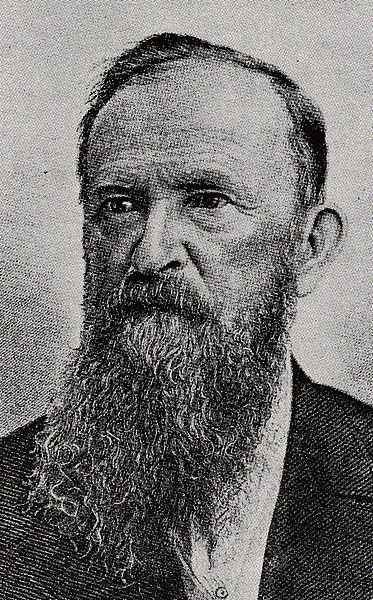
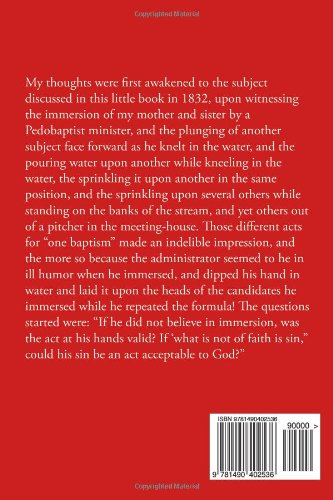
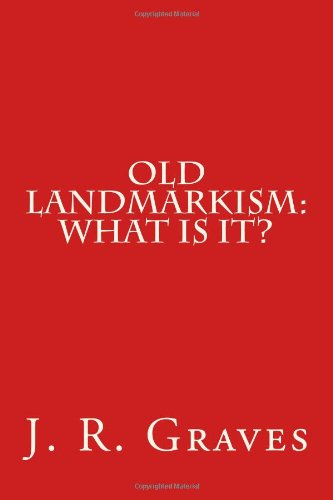

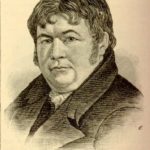
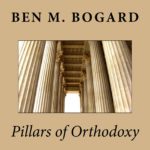

Reviews
There are no reviews yet.